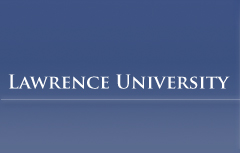Document Type
Press Release
Publication Date
1-1-2004
Abstract
Was President Abraham Lincoln acting on purely moral grounds when he issued his famous proclamation that ended slavery in the United States? Lawrence University historian Jerald Podair argues Lincoln’s motivation was driven by more than repugnancy for the institution of slavery.
Podair presents “Back Door to Freedom: The Paradoxes of the Emancipation Proclamation,” Tuesday, Feb. 3 at 7:30 p.m.in the Wriston Art Center auditorium on the Lawrence campus.
Podair’s address is in conjunction with the traveling national exhibition, “Forever Free: Abraham Lincoln’s Journey to Emancipation,” which is on display in the Lawrence library until March 5.
Podair will explore the pragmatic reasons behind Lincoln’s decision, examining the Emancipation Proclamation not merely as a moral gesture of idealism but as a war measure to preserve the Union by destroying the Confederacy’s capacity to make war through its most important asset — slave labor. Podair argues part of the United States’ peculiar genius lies in its ability to produce leaders like Lincoln, who understood that pragmatism and self-interest may not be paradoxes after all.
A specialist on 20th-century American history, urban history and race relations and the author of the 2003 book “The Strike That Changed New York: Blacks, Whites and the Ocean Hall-Brownsville Crisis,” Podair joined the Lawrence history department in 1998. Promoted to associate professor in 2003, he earned his Ph.D. at Princeton University.
Department
History
Recommended Citation
Lawrence University, "Lawrence University Historian Examines Paradoxes of Lincoln’s Emancipation Proclamation" (2004). Press Releases. 281.
https://lux.lawrence.edu/pressreleases/281
